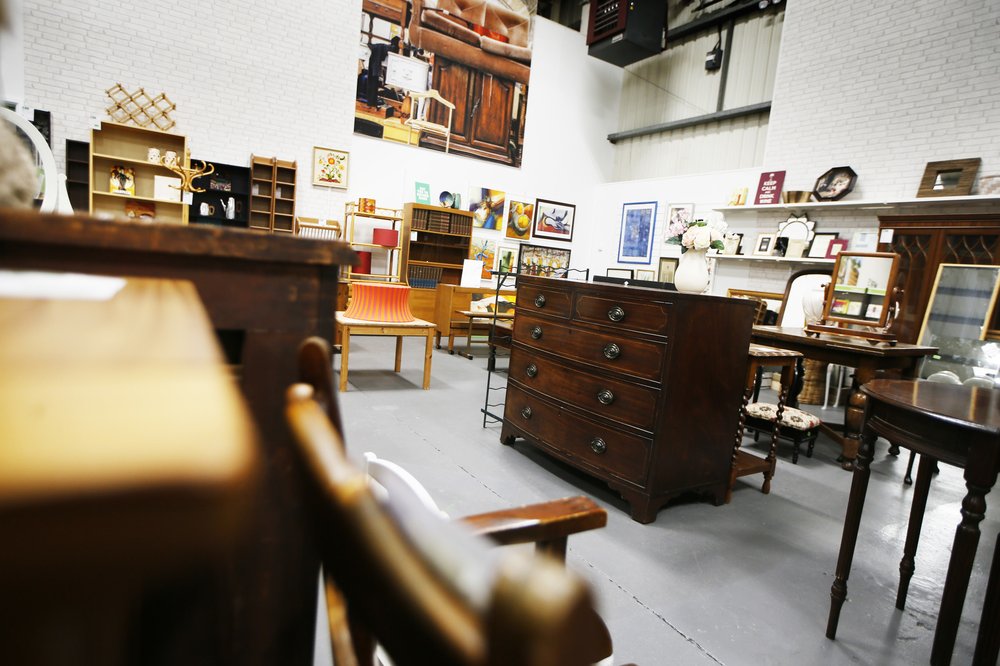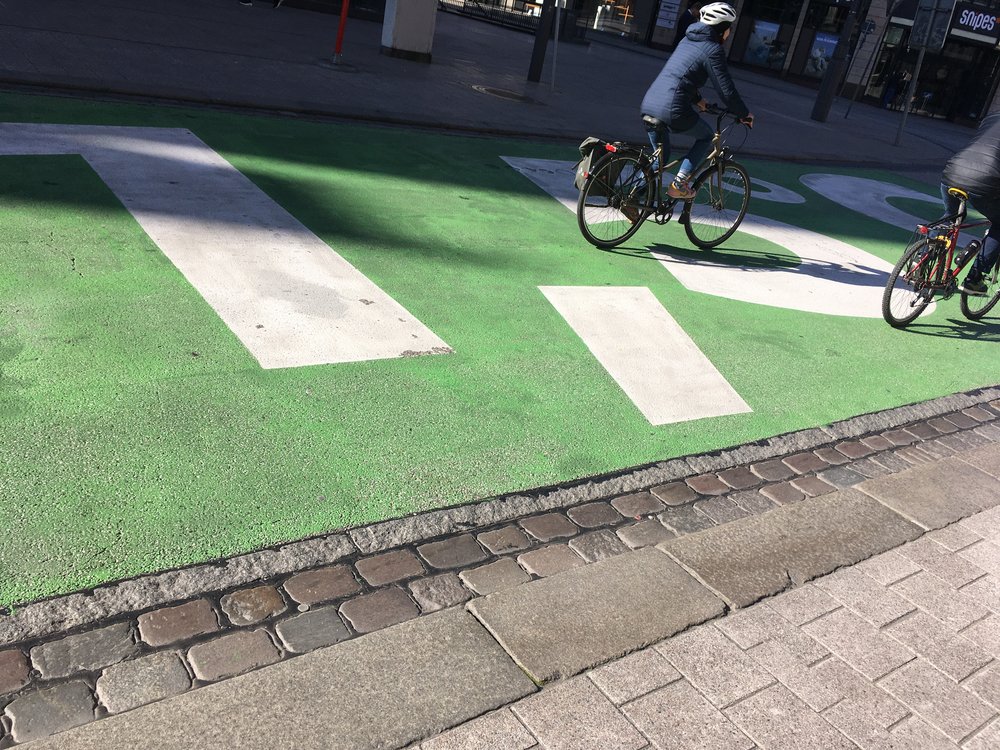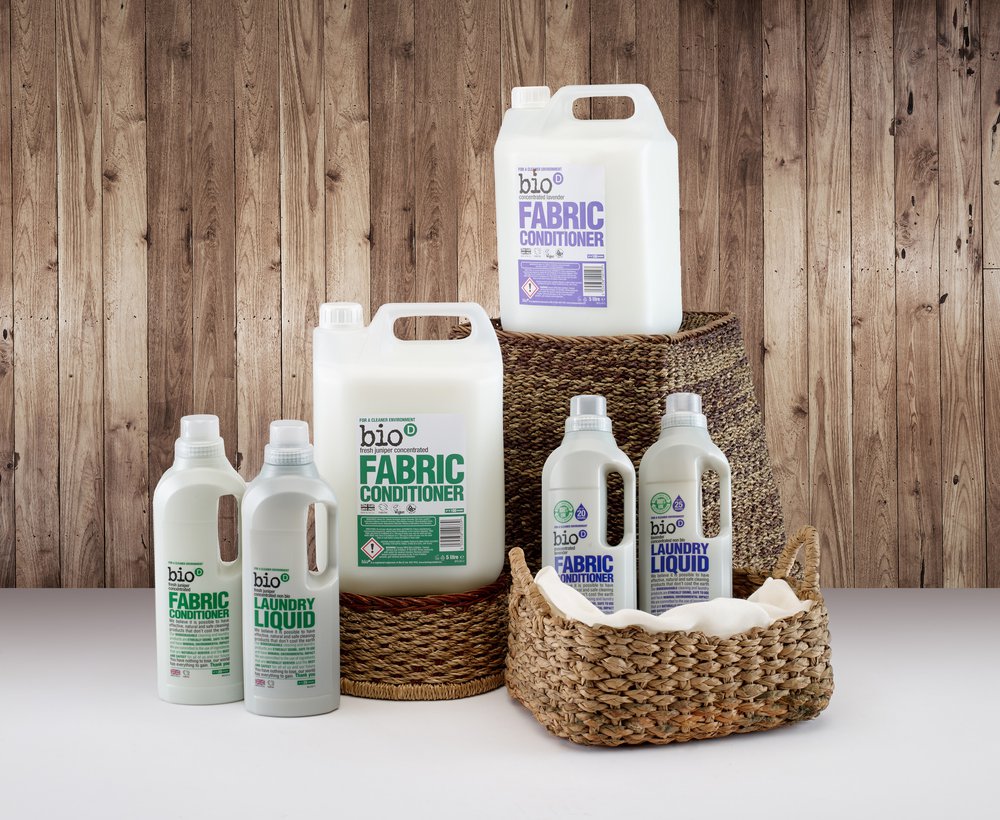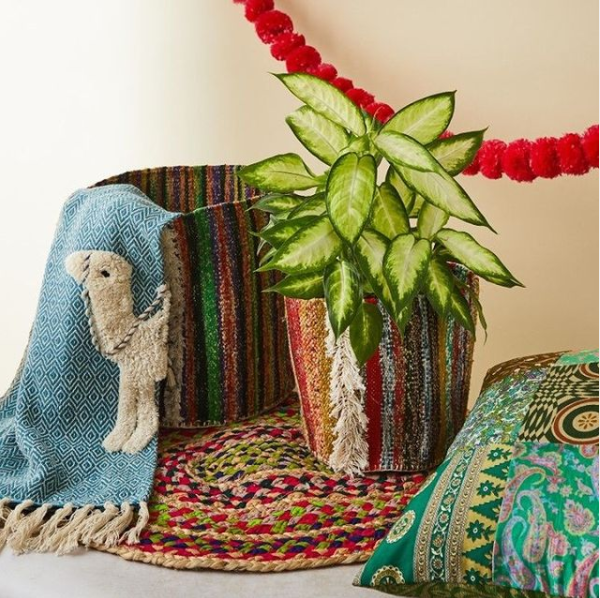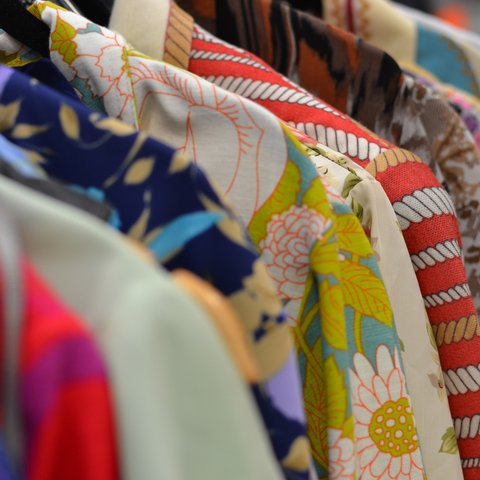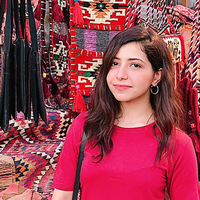1. Get second hand furniture
Want to fill your home with fancy antique furnishings on a budget? Buy second hand furniture! Not only can you find unique tables, chairs, art and more for a fraction of the price they'd cost new, but you're also giving existing furniture a longer life. This is more sustainable than buying fast furniture. Fast furniture, like fast fashion, is furniture that is produced quickly and at scale and that often uses materials that are not sustainable.
2. Donate your pre-loved goods
Sometimes holding on to items you no longer need or have space for can be inevitable. There comes a time when a clear-out can do a world of good, for you and others, when you donate your items to charity. There of lots of items that can be donated directly to your local Oxfam shop or through Oxfam’s postal donation service because what might be of no use to you now could be just what someone else is looking for. Plus, the more items that are given a second lease of life means less items ending up in landfill.
3. Add insulation
Increasing loft insulation and cavity wall insulation can keep cool air in during the summer and warm air from heating in during the winter. This also helps to reduce heating bills. And knowing that it can improve the energy rating on an Energy Performance Certificate (EPC) could help persuade homeowners to increase insulation.
4. Install a heat pump
Heat pumps absorb heat from one place – the outside air or underground – and move it to another. They use an electric compressor to make higher-temperature energy from energy pumped at a lower temperature. They can be used to heat or cool a home. The electricity the compressor uses can be provided sustainably. Heat pumps will be one of the most sustainable options for heating our homes in the future.
5. Get solar panels
Solar panels are a great way to generate electricity using the power of the sun. They can be used to help power your home and bring costs down or to sell the energy to make your energy bills more affordable or both!
6. Install solar water heating
Solar water heating uses sunlight to heat your water. So you could power your shower and kitchen tap with the sun.
7. Use sustainable washing products
Sustainable washing products are cruelty-free and use ingredients from sustainable sources. They don’t use harsh chemicals that contribute to polluting our rivers and seas and are often free from plastic packaging. When it comes to washing your clothes, you can reduce the number of plastic fibres shed from your clothes by using a guppy friend bag as well as using eco-friendly laundry products.
8. Plastic-free food shopping
In countries like New Zealand, it's common for people to take old cardboard boxes and shopping bags to the supermarket to transport their shopping home in. This practice has grown in popularity in the UK and is a great way to reduce the use of single-use plastic. Outside of supermarket shopping, ordering vegetable boxes and food from Fairtrade, ethical brands reduces waste and supports local businesses. You’re also likely to find a selection of glass Tupperware containers in your local Oxfam shop for an attractive way to display herbs and spices in your kitchen. Browse more of Oxfam’s fair trade products, including chocolate and other Fairtrade food.
9. Make your bathroom more eco friendly
You don't have to use bleach and other detergents that can be dangerous for the ecosystem to clean effectively. Companies like Bio D make sustainable bathroom cleaning products that come in recycled packaging and can be refilled. As well as being made from natural derived alternatives which are kinder to the planet, they’re also cruelty-free, vegan and Allergy UK-approved for greater peace of mind.
